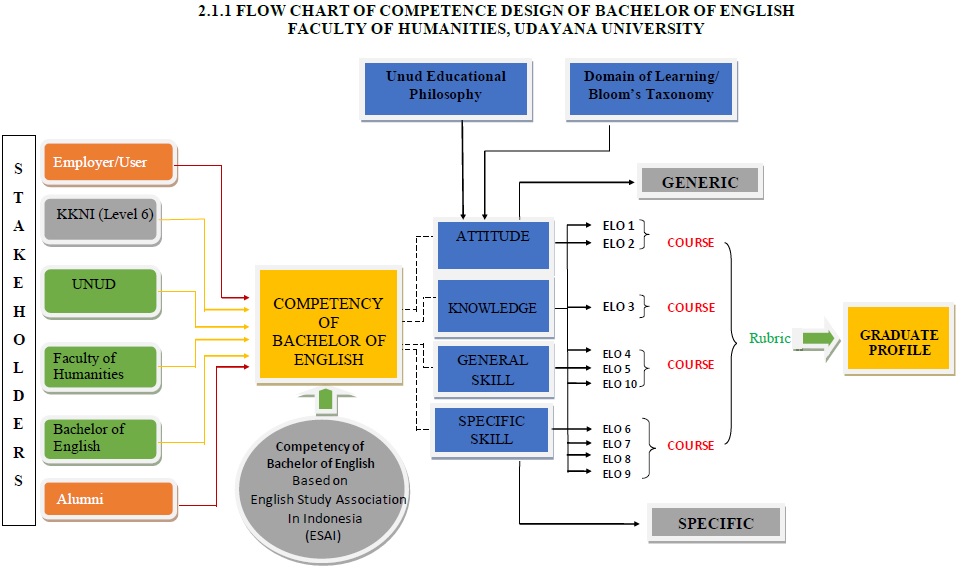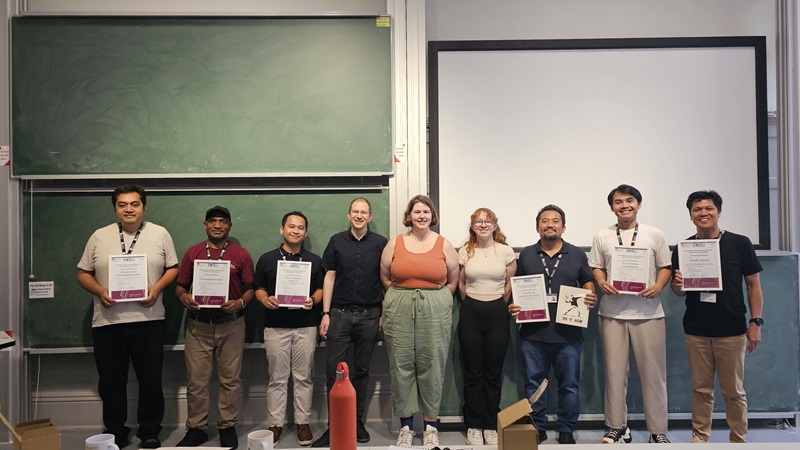Expected Learning Outcomes (ELO)

The English Study Program is committed to produce graduates profile as: (1) research assistant, (2) language teachers, (3) administrators, (4) authors, (5) entrepreneurs, and (6) communicators with the ability to communicate in various contexts by effectively using English with socially responsible awareness, together with being analytical, creative, and critical, using it as a tool for earning and life-long learning. Graduates of the English study program are not only expected to master English language, literature and culture but are also expected to have the ability to communicate, cooperate and actualize their fields at national and international levels.
| Domain of Learning | Expected Learning Outcomes The English Study Program is committed to produce graduates with the ability |
| ATTITUDES | 1. to show religious attitudes and social sensitivity by upholding the value of humanity and respecting the diversity of cultures, religions, and beliefs. 2. to internalize academic values and demonstrate academic honesty, integrity and professional ethics with the spirit of independence, hard work, and entrepreneurship. |
| KNOWLEDGE | 3. to explain basic concepts, methods, and theories of linguistics, literature, translation, and language teaching. |
| SKILLS | 4. to demonstrate proficiency in four English skills: listening, speaking, reading, and writing characterized by an achievement equivalent to CEFR level B2 and to communicate in English in a cross-cultural context. 5. to produce a scientific description of the results of study in the form of undergraduate thesis or final project report, 6. to apply appropriate theories and strategies for translating common texts. 7. to analyze various forms of learned literary works. 8. to create a business plan or creative works independently using English knowledge and skills to provide English language services for specific purposes 9. to identify, formulate, and solve problems in linguistics, literature, translation, and language learning in communication and other language/ professional practices. |



FACULTY OF HUMANITIES